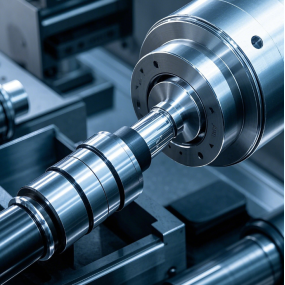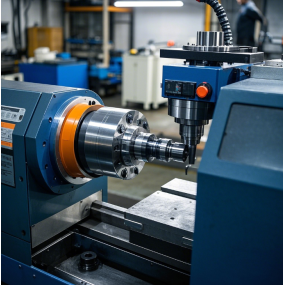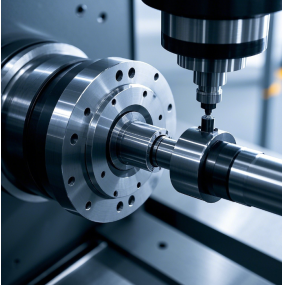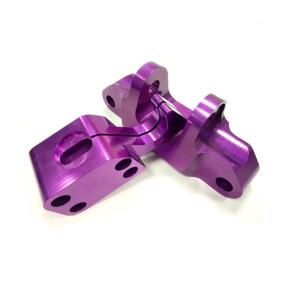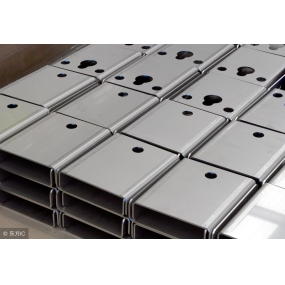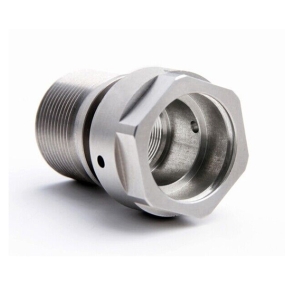Common failures in CNC Machining include the following:
1. Tool magazine problems: such as sudden stop during the tool change process, the hat-type tool magazine cannot be ejected, the knife cannot be loosened or tightened during tool change, and the cutter head rotates abnormally. These problems may be caused by insufficient air pressure, tool magazine motor failure, solenoid valve circuit problems, or abnormal PLC output.
 2. Machining failure: such as workpiece overcutting, insufficient machining accuracy, etc. This may be due to incorrect XYZ axis reverse clearance compensation, bearing damage, improper adjustment of system servo parameters or programming errors.
2. Machining failure: such as workpiece overcutting, insufficient machining accuracy, etc. This may be due to incorrect XYZ axis reverse clearance compensation, bearing damage, improper adjustment of system servo parameters or programming errors.
3. Handwheel failure: including poor contact of the handwheel shaft selector switch, failure of the handwheel magnification selector switch, damage to the handwheel pulse plate or broken connection wire, etc. These problems will affect the normal operation of the handwheel, which in turn affects the precise control of the machine tool.
4. Guide rail oil pump and cutting oil pump failures: such as insufficient oil level of the guide rail oil pump, damaged oil pressure valve, damaged oil circuit of the machine tool, or short circuit of the motor coil of the cutting oil pump. These failures can cause the oil pump to fail to work properly and affect the lubrication and cooling effect of the machine tool.
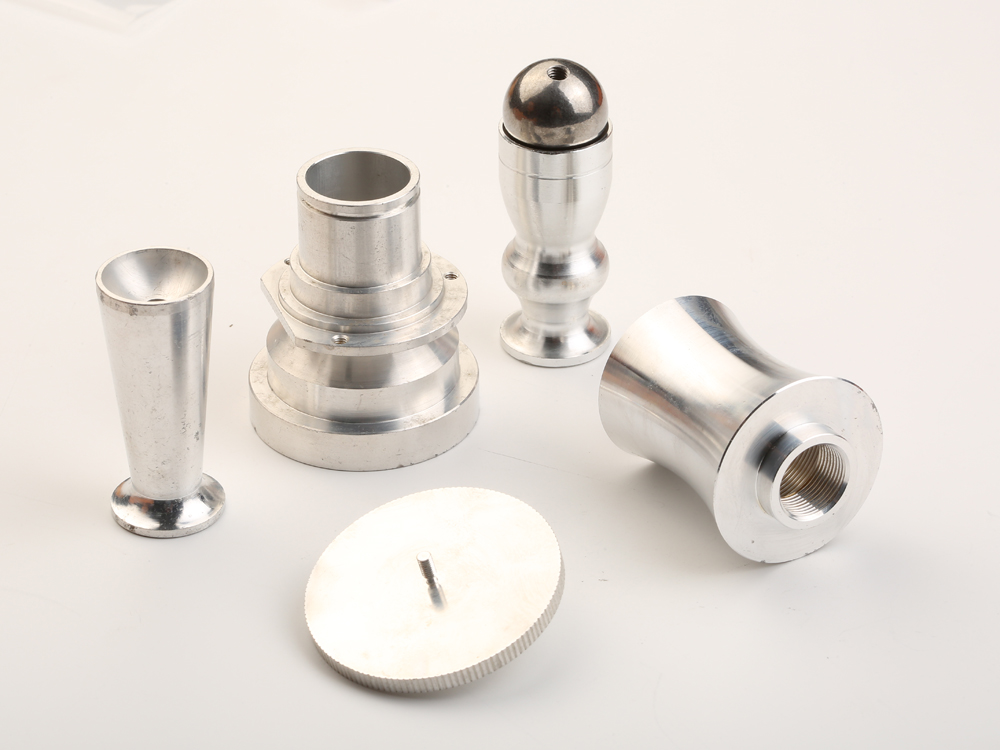 5. The machine cannot return to zero: it may be caused by the stuck origin switch contact, improper position of the origin stop, or burnt out of the PLC input point. This will cause the machine to fail to return to the initial position accurately, affecting the accuracy of processing.
5. The machine cannot return to zero: it may be caused by the stuck origin switch contact, improper position of the origin stop, or burnt out of the PLC input point. This will cause the machine to fail to return to the initial position accurately, affecting the accuracy of processing.
In addition, CNC machining may also encounter problems such as lubrication failures, program transmission errors, machine tool failure to power on, cooling water pump failure, and blowing failure. When facing these failures, it is necessary to carefully analyze the causes and take corresponding solutions to ensure the normal progress of CNC machining.


 Spanish
Spanish Arabic
Arabic Spanish Basque
Spanish Basque Portuguese
Portuguese Belarusian
Belarusian Japanese
Japanese Russian
Russian Icelandic
Icelandic Bulgarian
Bulgarian Azerbaijani
Azerbaijani Estonian
Estonian Irish
Irish Polish
Polish Persian
Persian Boolean
Boolean Danish
Danish German
German French
French Filipino
Filipino Finnish
Finnish Korean
Korean Dutch
Dutch Galician
Galician Catalan
Catalan Czech
Czech Croatian
Croatian Latin
Latin Latvian
Latvian Romanian
Romanian Maltese
Maltese Malay
Malay Macedonian
Macedonian Norwegian
Norwegian Swedish
Swedish Serbian
Serbian Slovak
Slovak Slovenian
Slovenian Swahili
Swahili Thai
Thai Turkish
Turkish Welsh
Welsh Urdu
Urdu Ukrainian
Ukrainian Greek
Greek Hungarian
Hungarian Italian
Italian Yiddish
Yiddish Indonesian
Indonesian Vietnamese
Vietnamese 简体中文
简体中文 Haitian Creole
Haitian Creole

